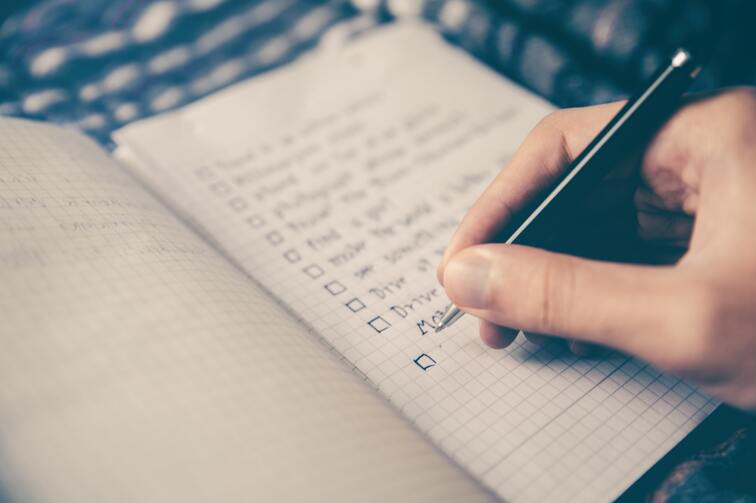Becoming a time management guru is possible. As a matter of fact, the art of time management is not something you're either born with or not. Anyone can practice time management skills to become more efficient and effective at their tasks and projects.
The problem is that there are so many tips, tricks and apps on the topic it's hard to know where to get started. In this article, you'll learn everything you need to know about the art of time management and find powerful techniques for mastering it. Setting yourself up for success in any project or goal you have this year will be easier than ever.

Time Management: Explained
Time management refers to the ability to plan and control how you spend your time in order to achieve your goals and objectives. It involves setting priorities, establishing goals, and creating a plan to use your time effectively and efficiently.
Time management skills are important because they help you to prioritize tasks, avoid procrastination, and reduce stress. By using time management techniques, you can improve your productivity and efficiency, and better manage your time and resources. This can ultimately lead to improved performance and success in both your personal and professional life.
In fact, time management is so important that there are entire courses at many universities devoted to teaching students how to manage their time more effectively.
Mastering The Art of Time Management
Mastery of time management is essential for the modern-day businessman. Time is your only non-renewable resource. The more effectively you use it, the more productive you will be. In my experience, I have learned to maximize my time most effectively by working smart, and not hard.
To get you started on the right track, we'll look at how good time management can really help you. You'll learn how mastering time management can improve your productivity, help you be more efficient, and give you better concentration levels.
Increased productivity
Time management is the key to increased productivity. The more effectively you manage your time, the more productive you can be. In fact, it's been proven that people with good time management skills are 25% more productive than those who don't have these skills.
In order to make the most of your day and achieve your goals, it's important to prioritize your tasks and set aside time for each one. When you're able to plan ahead and organize your day, you'll be able to get more done in less time while feeling less stressed out about what needs to get done next.
Improved focus and concentration
Time management is a skill that can greatly improve your focus and concentration. It's important to be able to get things done on time, but it's also important to make sure you're using your time in the right way.
If you're not spending enough time on the right things, there's no point in working longer hours or putting in more effort—you need to make sure your efforts are directed at the right tasks.
Maximize the use of available resources
Time management skills are essential to maximizing the use of available resources. No matter what your job is, there are only so many hours in the day and so many tasks to accomplish. The more efficiently you can manage your time, the better able you'll be to get everything done.

Reduced stress levels
Time management skills are important for reducing stress levels. When you are able to manage your time well, you will be able to get more done in less time. This allows you to reduce the amount of stress you feel because you will have more time to relax and de-stress.
More time to enjoy leisure activities
If you're like most people, you're probably feeling a little overworked and stressed out. You probably want to do more things with your life, but you also want to do them well.
It's not easy to find time for leisure activities in our fast-paced world—but it doesn't have to be impossible. In fact, time management skills can help free up your schedule so that you can spend more time doing what matters most: enjoying yourself.
Efficient Time Management: Essential Practices You Need to Know
Every person dealing with a large workload has to find that perfect balance between being efficient and staying sane. But here is the thing: most people don't know what they should be doing to make their day more manageable. Here are some ways to get yourself on the right track toward managing your time better.
Understand the difference between urgent and important
Urgent and important are two very different things. Urgent tasks are the ones that need to be done immediately, but they're not necessarily the ones that will make the most impact on your career or your business.
Important tasks, on the other hand, are those that will help you achieve your goals for a particular project or for your career as a whole. It's important to understand the difference between urgent and important so that you can prioritize your work accordingly.
Find a good time management system
Time management can be a huge challenge for many people, but it's not something that has to be overwhelming. It's a skill that you can learn and practice, just like any other skill.
You may have heard of the Pomodoro technique, which involves working in 25-minute chunks with 5 minute breaks in between each chunk. It's one way to manage your time more efficiently, but there are lots of others too!
You can also use a time tracking software to manage your time even more efficiently. By using a time tracker, you can clearly see how long you are spending on each task. To get actionable insights you can try using BeforeSunset.

Stick to a schedule and don’t miss deadlines
The most important thing you can do to manage your time is to stick to a schedule and not miss deadlines. This will help you avoid the chaos that comes with being late, and it will also help you get more done in less time.
If you have a busy week, organize your tasks so that they follow a routine: for example, Monday might be for researching, Tuesday for writing and Wednesday for gathering materials. This way, by Friday you’ll have everything you need ready to go!
Avoid procrastination and distraction
Procrastination and distraction are two things that can waste your time, and ultimately, your life.
To avoid procrastination, try using the same tools you would use to manage your time effectively. For example, if you have a task that needs to be done, break it down into steps and set deadlines for each step so you know when it will be finished. If you don't like to work on something when you're distracted, set up a quiet space or time where you can focus.
Distractions are inevitable, but they don't have to be bad things! If you find yourself distracted by something that isn't urgent, put it on a list of things to do later so you don't lose track of it. Or ask someone who works with this kind of thing if they could help answer any questions that might arise while researching it (and hopefully they will!).
Limit multitasking
Multitasking can be a great way to get more done, but it's important to remember that the quality of your work is more important than how quickly you can complete tasks. Multitasking can make you feel like you're being productive, but when you're actually doing several things at once and not giving any one thing 100% attention, the result is often poor performance on all fronts.
Do difficult work when you know you’re most productive
One effective time management strategy is to do your most difficult or challenging work when you are most productive. This means identifying the time of day when you have the most energy, focus, and concentration, and then scheduling your most demanding tasks for that time. By tackling your most difficult work when you are at your best, you will be able to work more efficiently and effectively and get more done in less time.
Have a Dynamic Task List
Having a dynamic task list involves creating a list of all the tasks that you need to complete, and then regularly updating and adjusting the list as your priorities and goals change. A dynamic task list allows you to see all of your tasks in one place, which can help you to prioritize them and focus your attention on the most important tasks.
It can also help you to avoid forgetting important tasks and to track your progress and stay on track with your goals. Additionally, a dynamic task list can be a useful tool for identifying any time-wasting activities or tasks that are not aligned with your goals and eliminating or delegating them to free up more time for high-priority tasks.

Minimize Interruptions
Interruptions can disrupt your focus and concentration to minimize them, you can create a distraction-free environment, set aside specific times for checking emails and messages, and limit or eliminate non-essential meetings and other interruptions.
Exercise to Clear Your Head in Between Work Sessions
Exercising to clear your head in between work sessions is a time management strategy that can help you to stay focused and productive. Regular physical activity can improve your concentration, mental clarity, and overall cognitive function.
By taking short breaks to exercise during the workday, you can give your mind a rest and refresh your mental energy. This can help you to avoid burnout, stay motivated, and tackle your tasks with renewed focus and determination.
Review Your Day
At the end of each day, take a few minutes to review what you accomplished, what tasks you still need to complete, and any challenges or obstacles you faced. This can help you to identify any time-wasting activities, prioritize your tasks for the following day, and make any necessary adjustments to your schedule or plan.
Use Your Dead Time Wisely
"Dead time" refers to the periods of time when you are not actively working on a specific task or project. This can include time spent commuting, waiting in line, or even just sitting idle without anything to do.
Instead of letting these periods go to waste, you can use them to catch up on small tasks or errands, learn something new, or even just take a few minutes to relax and recharge.
Motivate Yourself
When you are motivated, you are more likely to stay focused, avoid procrastination, and tackle your tasks with determination and enthusiasm. To motivate yourself, it can be helpful to set clear, specific, and achievable goals, and break them down into smaller, more manageable tasks. This can help you to stay on track, and to see your progress as you move closer to your goals.
Additionally, you can motivate yourself by rewarding yourself for completing tasks or achieving milestones, and by surrounding yourself with supportive and positive people.

Technology-Enabled Time Management: Making the Most of Every Minute
Technology can be a valuable tool for managing your time effectively. There are many different types of technology that can help you to plan, organize, and track your time, and improve your productivity and efficiency. For example, you can use digital calendars, task lists, and scheduling tools to manage your time more effectively. These tools can help you to set priorities, avoid procrastination, and stay on track with your goals.
Additionally, you can use technology such as time tracking software to monitor your time use and identify any time-wasting activities or habits. By using technology to manage your time effectively, you can improve your productivity, and reduce stress. It helps you better achieve your goals.
BeforeSunset: Mastering Time Management with Ease
With its new generation time tracking, BeforeSunset can help you see how much time you are spending on each task. With its detailed reports, you can avoid overworking. Creating a work-life balance has never been easier
BeforeSunset is everything you want and more from a time management software. Let the workday work for you.


